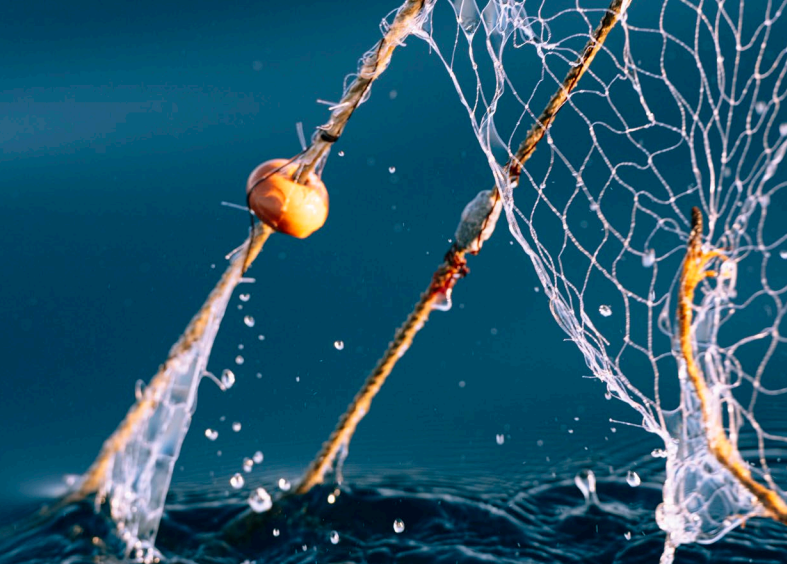In this article, the author extracts from the recent report ‘Feeding a monster: How European aquaculture and animal feed industries are stealing food from West African communities’ the main findings related to the European Union and its Members States, and looks at how some of the recommendations may be implemented in the EU.
EU-Madagascar SFPA negotiations resume: Key issues for the future of small-scale fisheries in Madagascar
The EU new approach on blue economy should recognize that artisanal fisheries are the main provider of "Ocean Livelihoods" in Africa
Food promotion policy –the EU should encourage quality over quantity seafood consumption
This article looks at the sustainability concerns of both wild-caught fisheries and industrial aquaculture and argue that the EU should not promote seafood consumption but focus on providing accurate and complete information to consumers and look into the wider environmental and social sustainability issues throughout the fish value chain.
Seychelles FITI report: Stakeholders make recommendations regarding access by fleets of foreign origin
Seychelles is the first country in the world to publish a report that assesses the compliance against the transparency requirements of the FiTI standard. The author comments on the main findings of the Multi Stakeholder Group and highlights the recommendations for foreign fleets and the importance of understanding the value of local fisheries.
Can an EU vessel fish sustainably in an IUU yellow carded country?
Key issues for EU-Mauritius SFPA negotiations: Tuna stocks sustainability, post-covid19 recovery for the local sector and transparency
African artisanal fisheries at the forefront of the fight against predatory and opaque industrial fishing companies
Cameroon IUU yellow card: The EU should also sanction European companies hiding behind this country’s flag
Ensuring Gender Equity in artisanal fisheries
Coinciding with the celebration of the International Women’s Day, and looking at the upcoming International Year of Artisanal Fisheries in a year from now, the author reviews the dedicated Gender Guide for the implementation of the Voluntary Guidelines on Small-scale Fisheries, published by FAO and ICSF in 2017.
The smoke and mirrors of Blue economy bonanza make African women fish processors choke
What future for Sustainable Fisheries Partnership Agreements?
In view of the global evaluation of the Sustainable Fisheries Partnership Agreements (SFPAs) that will be carried out by the Commission in 2021, the author highlights the key points which will need to be assessed from the perspective of the impacts on African coastal communities. The author also suggests essential improvements to be made for the future of SFPAs so that they better respond to the needs of these communities.
A better 2021
International Ocean Governance: more can be done to promote socially and environmentally sustainable fisheries
Improving scientific observer coverage in mixed Fisheries Agreements in West Africa
BirdLife Europe and Central Asia, CFFA and WWF release a joint paper with recommendations to harmonize the conditions for the embarkment of scientific observers on board EU vessels and ask that data collection include more specifications on the biological information required, including information on bycatch species.
World Fisheries Day: How the EU can support sustainable African artisanal fisheries
In this declaration on the occasion of World Fisheries Day, CFFA calls on the European Union to integrate the FAO Guidelines for Securing Sustainable Small-scale fisheries into all its policies that have an impact on this sector, particularly in the Blue Economy and Farm to Fork strategies and in its external action.
Small scale fisheries at risk: Madagascar signs destructive fishing agreements with Chinese investors
Replacing fisheries and decarbonizing the sector? We should not expect it from industrial aquaculture
This position paper explores the false promises of industrial aquaculture, highlights the key sustainability issues of promoting farming of carnivorous fish species, such as salmon, underscores the environmental and social impacts throughout the whole value chain and explains why the EU should stop promoting seafood coming from industrial aquaculture and instead focus on promoting sustainable small-scale and low impact fisheries and aquaculture.
Sustainable Fisheries Partnership Agreement negotiations between the EU and Mauritania: staying on course
As a new round of negotiations between the EU and Mauritania is expected to start soon, this position paper recalls the demands of the Mauritanian artisanal fisheries sector, highlighting technical conditions, such as the access to octopus to be reserved for local artisanal fishers, the zoning for trawlers to be maintained, and landings of small pelagics to be kept. Governance issues are also key, such as transparency, especially regarding the activities of other foreign fleets; and the urgent need for the SFPA to contribute to regional management for shared stocks.
EU Farm to Fork Strategy: Raising the ambition on global fisheries aspects
On World Food Day (16 October) we publish this short brief, which reviews the recommendations of the EU Food Policy Coalition on the global aspects of the EU Farm to Fork (F2F) strategy, underscoring that F2F largely ignores seafood production, and highlights EU trade, cooperation and imports aspects that are essential for sustainable external fisheries.




















